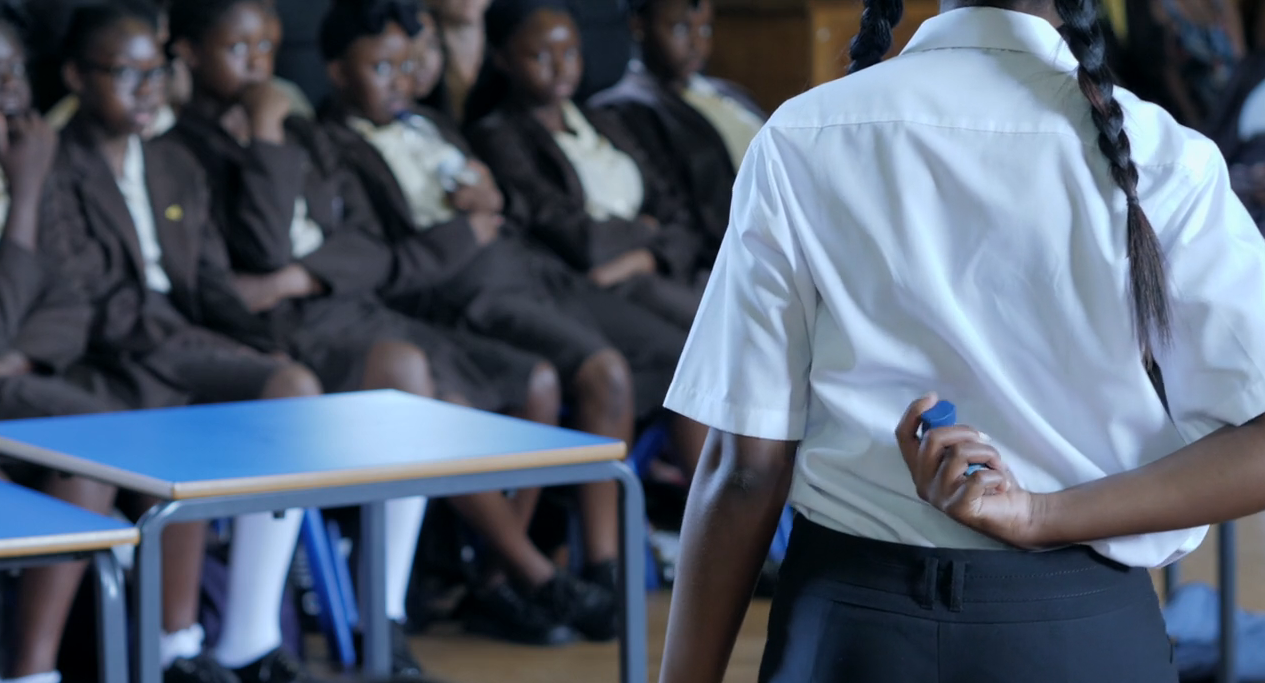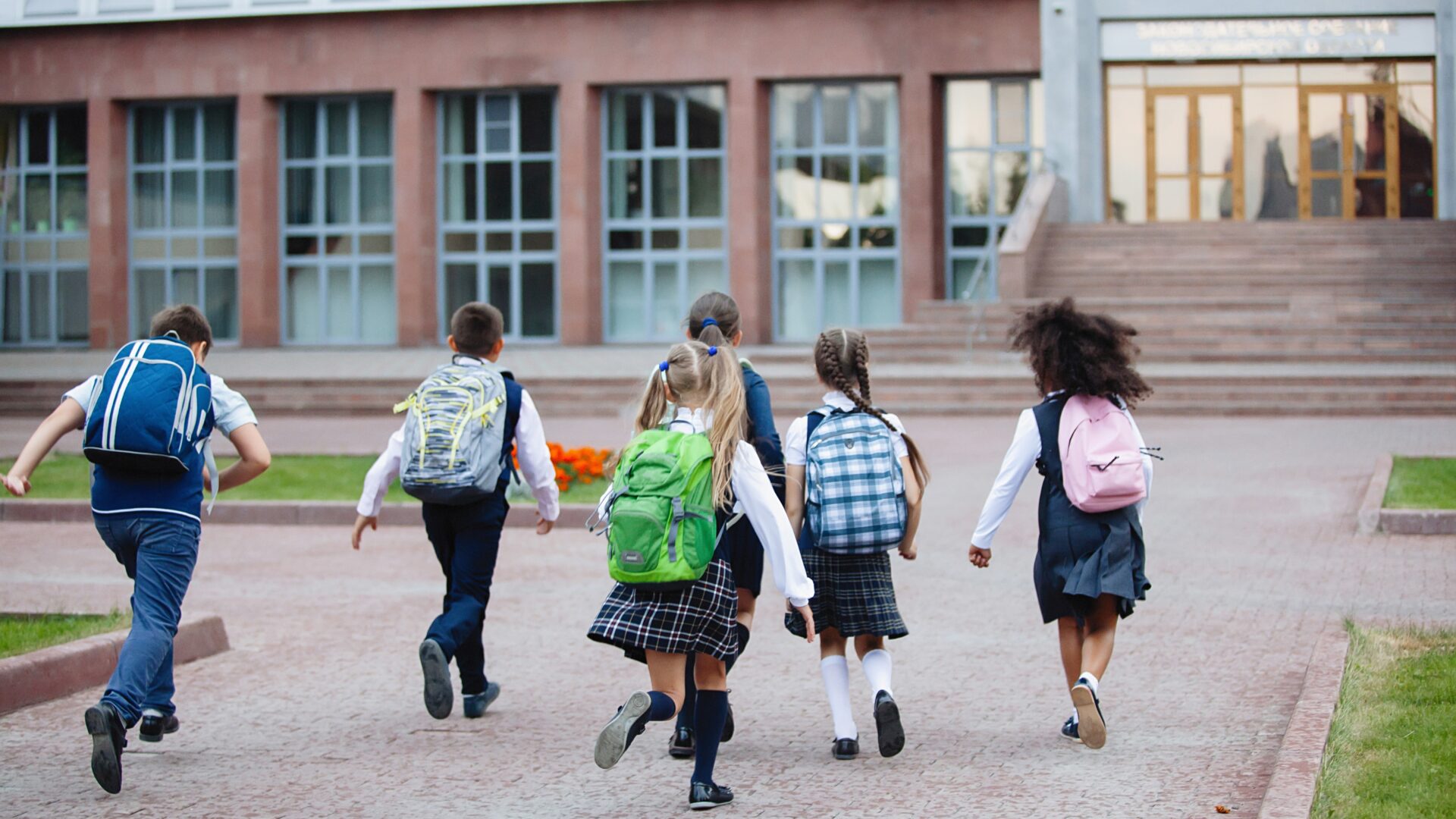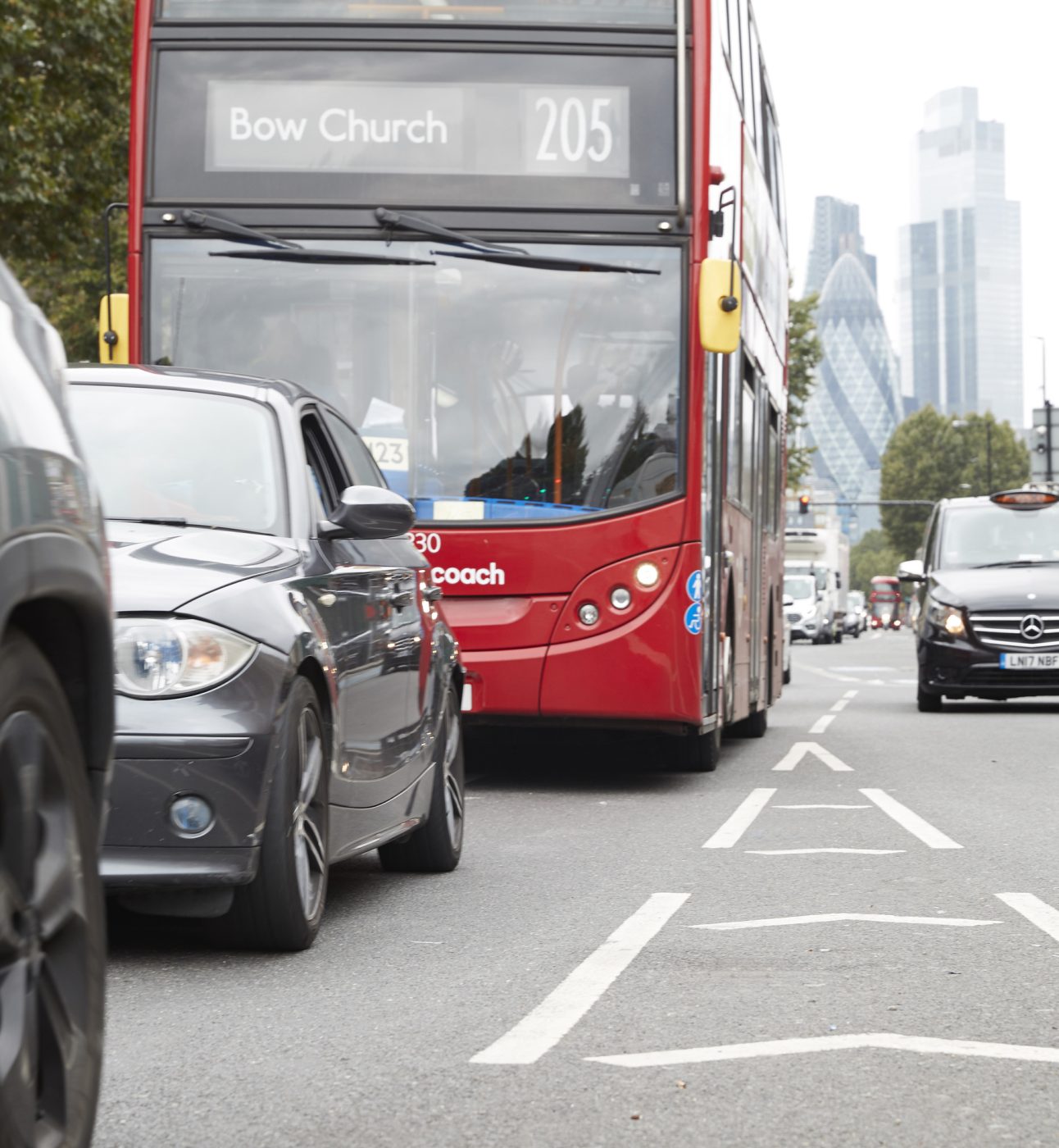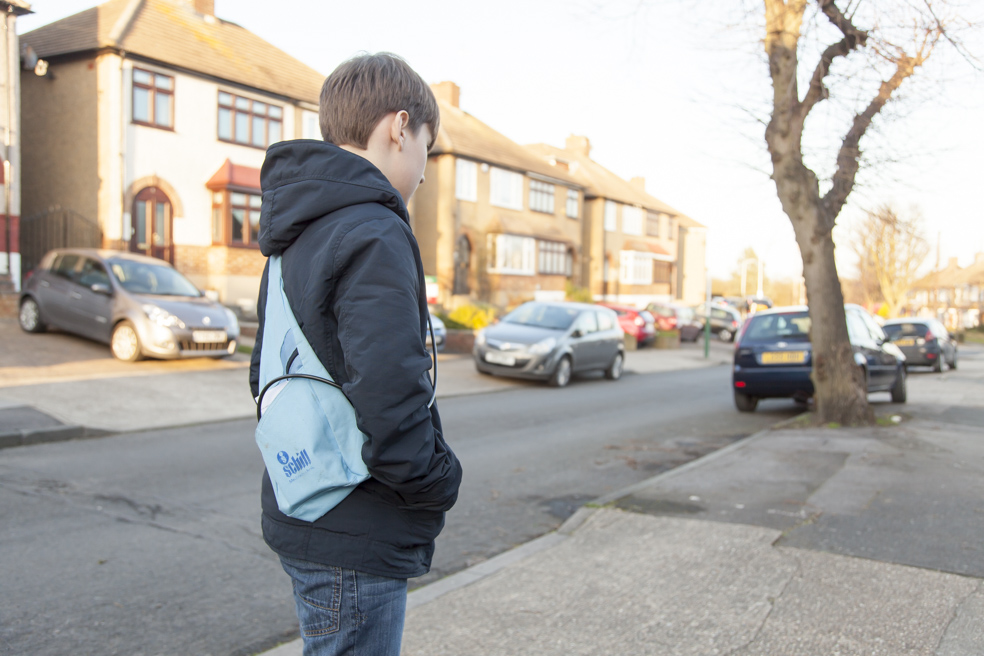
Improving asthma management in schools
Barts Charity-funded study finds that in-school workshops could help children with asthma.

This World Asthma Day, we spoke with Abigail Whitehouse who, thanks to our support, has done vital work to understand air pollution and its effects on East London children.
We all need clean air. But for children, clean air is instrumental in developing a healthy respiratory system. Exposure to air pollution at a young age can set children up to face a lifetime of respiratory problems. And for children with asthma, exposure to air pollution can make their symptoms much worse and, in some heartbreaking cases, can even be fatal.
That’s why we’re committed to funding vital research into air pollution, to help understand and improve the effects it has on children in our local area.
This World Asthma Day, we spoke with Abigail Whitehouse, a Paediatric Respiratory Consultant and researcher. She has dedicated much of her career to understanding the key risk factors when it comes to children’s respiratory health, and ways this can be improved in our East London community.
From her initial fellowship through to her most current research, we have supported her through it all.
In 2016, we awarded Abigail a one-year PhD completion fellowship. Her research looked into the effects of day-to-day air pollution exposure on the immune cells in the lungs of healthy school-aged children. She took samples from over 400 school children, whilst simultaneously working with these children to increase awareness around air pollution. For Abigail, this was the start of whole new career path into research.
“Most of my asthmatic kids in clinic have horrible pollution exposures, both indoor and outdoor. And actually, through research, you can make some changes and you can do something about it.”Abigail Whitehouse
“By doing research in the community, you can find out where you need to act to be able to make change. The kids that attended schools in the most polluted areas were more likely to have lower lung function along with having these more activated cells in their lungs. We managed to show for the first time what had actually happened in real life. Continuing to do that work was really important.”

Recent studies have shown that one in four London school playgrounds now exceed the legal limit for nitrogen dioxide levels.
In 2023, Abigail, in collaboration with Professor Jonathan Grigg, helped to establish the UK’s first ever clinic dedicated to tackling air pollution. The clinic is based at The Royal London Hospital and provides tailored advice for children who have, or are at risk of developing asthma. We supported this incredible initiative with a grant of over £500,000.
By monitoring pollution levels both in the home and at school, the team produces an exposure report for each child. They then work with the child and their family to find ways of reducing their level of exposure. Their work highlights how housing is also having a huge impact on children’s respiratory health, particularly mould.
“You’ve got a highly diverse population with lots of social deprivation. You’ve got people that can’t move house, or if they do move house, they can’t move very far. You’ve got overcrowding. Tower Hamlets, for example, has got a housing waiting list of about 23,000 families.
It’s a storm in a teacup; a collection of things that are all fighting against the people that live in North-East London.Abigail Whitehouse
“It’s hard to change your housing situation, but are there behavioural changes that we can encourage? Do we need referral pathways to housing? Do we need more information about what they’re being exposed to at places they can’t control, such as playgrounds? We need a way to empower people to start having these conversations.”
Following her work at the Air Pollution Clinic, Abigail has now been appointed as a respiratory expert to the UK Government’s Committee on Medical Effects of Air Pollution.

Overcrowded housing is a big issue for people in East London.
Recent research has shown that one in four school playgrounds now exceed the legal limit for nitrogen dioxide levels. Levels are 8% higher in the most deprived areas compared to other areas. Thanks to our funding, Abigail will be doing a first-of-its-kind study to highlight the health impact this is having on school children, in the hopes that it can inform local and city-wide public policy.
By focusing on children in her research, Abigail aims to make a real difference to their lung health – before any permanent damage is done.
“The risk is that if you don’t do it early and make the change early in life, by the time they get to about 21 or 22, there’s no turning back. You can’t improve your lung function after that. By finding ways of reducing pollution levels at that young age, there is scope for improvement.
Barts Charity’s funding has supported us to do research in the local community, not just in a lab. We want to understand the bigger picture of air pollution and how we can support the population of East London. I think one of the nicest things about Barts Charity is they are open to what they fund. There's a real focus on making a difference within the community.Abigail Whitehouse

Barts Charity-funded study finds that in-school workshops could help children with asthma.

A new Children's Environmental Assessment Service is set to open at the Royal London Hospital in 2023, funded by Barts Charity.

We’ve awarded London researchers a £300,000 grant to study the impact of air pollution on children’s brain function and mental health.